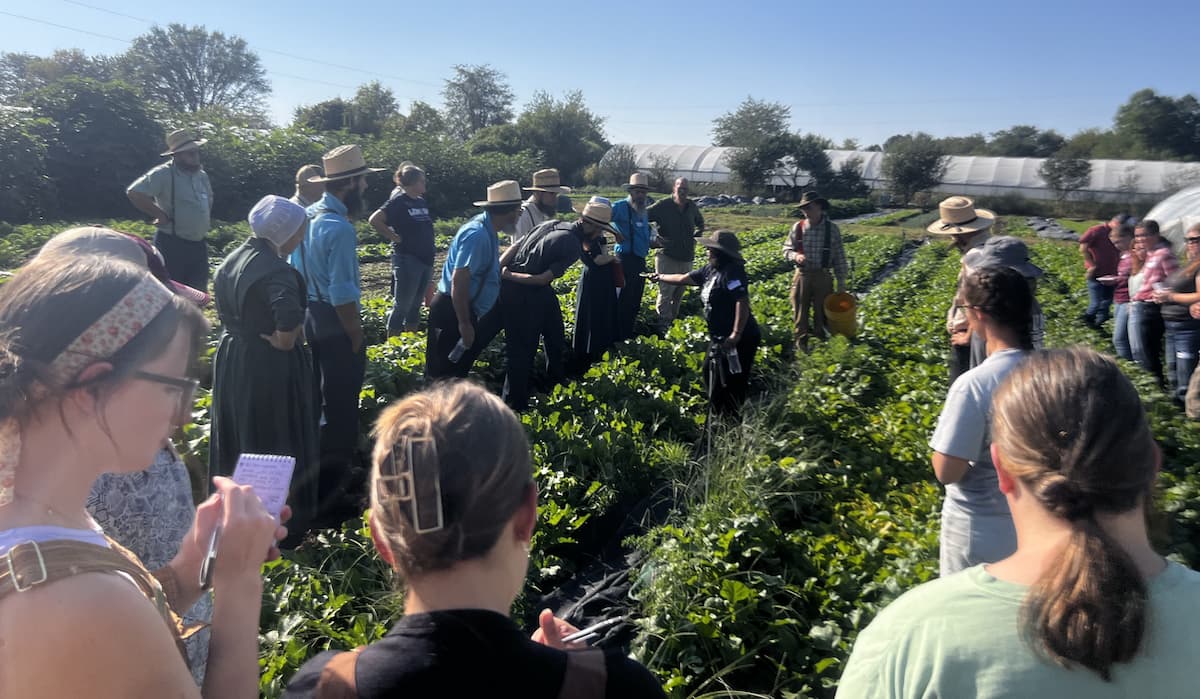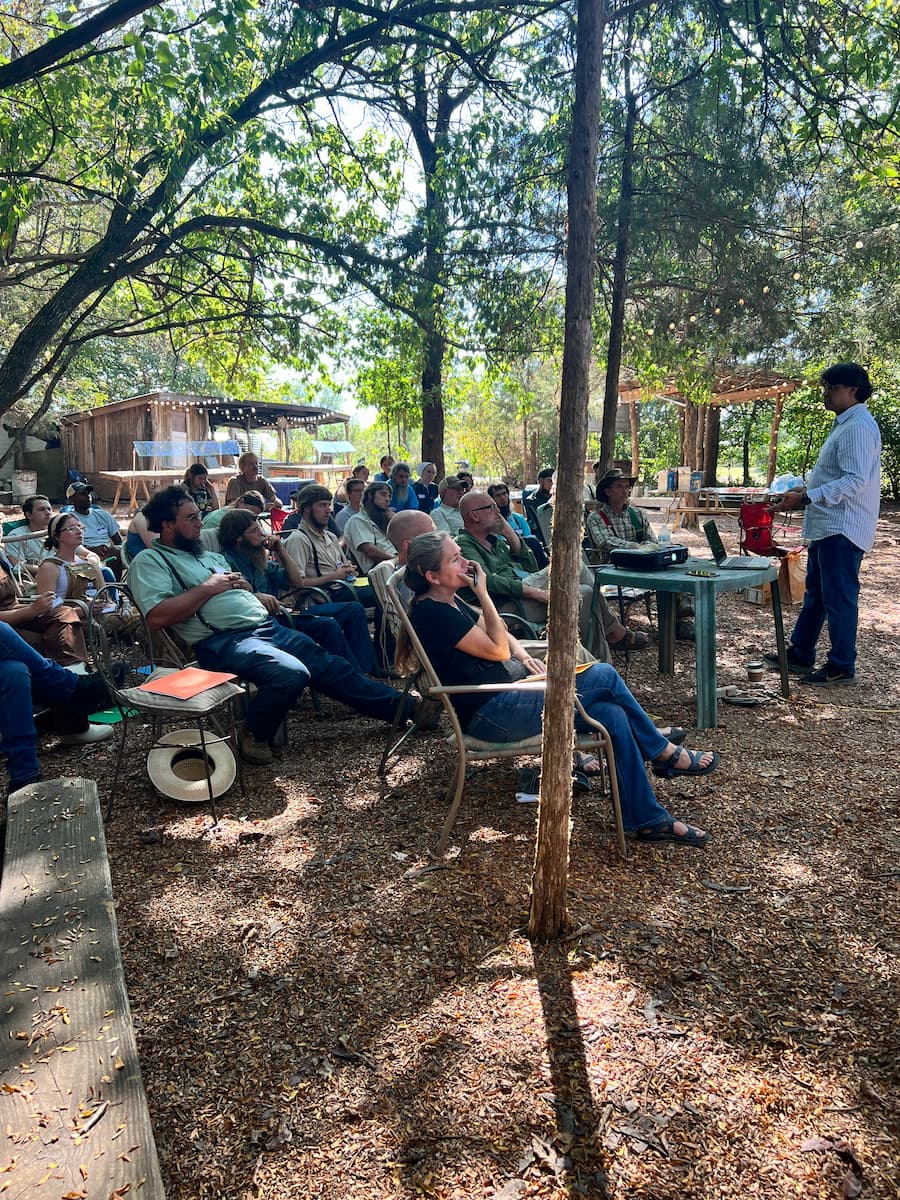On-Farm Field Day Strengthens Pest Management and Crop Improvement Skills
Office of Communications and Marketing
Young Hall
820 Chestnut Street
Jefferson City, MO 65101
 Dr. Anitha Chitturi, State Extension Specialist – IPM Program, demonstrates to participants during the on-farm field day how to identify key cucurbit pests.
Dr. Anitha Chitturi, State Extension Specialist – IPM Program, demonstrates to participants during the on-farm field day how to identify key cucurbit pests.
Lincoln University (LU) Cooperative Extension’s Integrated Pest Management and Crop Improvement Field Day took place in mid-September. The event, held in the relaxed open-air setting of Millsap Farms, drew 45 participants, including regional farmers, Amish growers and students.
The field day featured presentations by Lincoln’s Dr. Anitha Chitturi and Dr. Suman Veeramasu, who shared research-based strategies aimed at improving crop productivity and sustainability.
Chitturi opened the event with her talk, “Pest and Disease Challenges in Vegetable Crops,” which highlighted major pests and diseases affecting vegetable production. She discussed the use of Integrated Pest Management (IPM) tools and sustainable approaches that reduce dependence on chemical pesticides.
Chitturi chose these topics for discussion based on feedback from farmers. She sent out questionnaires before the event, allowing farmers to share which topics are most useful to them.
However, the event was not perfect. “We had some technical problems — we couldn’t start the projector, so we were stuck for 30 minutes” Chitturi said with a laugh. “But that’s how it goes with outdoor trainings. The more important part was the farm tour.”
 Dr. Suman Veeramasu, an LU plant biotechnologist, explains to participants the role and advantages of using biostimulants.
Dr. Suman Veeramasu, an LU plant biotechnologist, explains to participants the role and advantages of using biostimulants.
Veeramasu followed with a presentation on “The Role of Biostimulants in Enhancing Crop Performance and Productivity.” He emphasized the use of eco-friendly, non-chemical tools that improve soil health, plant growth and crop yield.
Chitturi explained that biostimulants “are not fertilizers” but “specific natural compounds in a liquid or powder form that are sprayed on the plant to give it an extra boost — like a multi-vitamin for the plant.”
Throughout the morning, participants engaged in open discussion and hands-on learning in an informal outdoor atmosphere. Attendees posed thoughtful questions that reflected their curiosity and growing understanding of sustainable farming concepts.
Jack “JJ” Spurlin of Lincoln University’s Innovative Small Farmers’ Outreach Program described the event as a true partnership. “It wasn’t just a learning experience for me,” Spurlin said. “It was actually a collaborative effort between our Extension program and the host farm.”
Many participants said the workshop offered eye-opening insight into biostimulants and pest management practices they could apply directly to their operations.
“Participants discovered that the power of biostimulants makes plants stronger naturally,” said Veeramasu. “It’s a new way to farm biologically: healthier soils, stronger roots and better yields."
